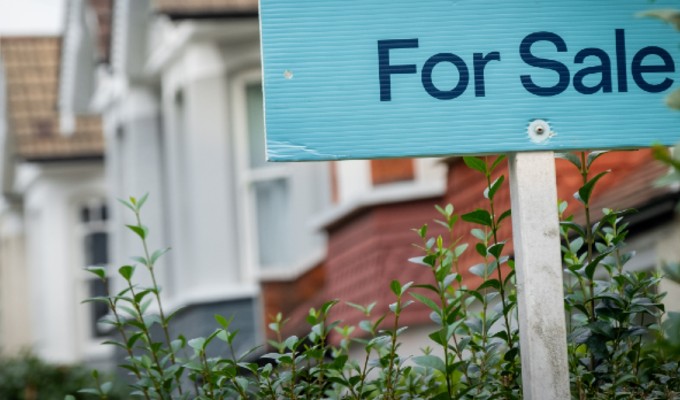Residential conveyancing is the act of transferring the contractual title of a property from one owner to another.
Whether it's your first home or you're moving on to pastures new, the property market can be a stressful and complicated place.
If you're buying, selling, remortgaging, transferring equity or extending your lease, our experienced conveyancing solicitors ensure the process is efficient, stress-free, and transparent.
Get a free online quote for your residential conveyancing
Find out how much your residential conveyancing will cost with a free online quote.
Explore our residential conveyancing services

Buying a property
Expert guidance through your property purchase journey. Our solicitors handle searches, negotiations, contracts, and fund transfers, ensuring a smooth and hassle-free transaction.

Selling a property
Make selling your home simple and stress-free. Our professional conveyancers manage all legal aspects, from contract exchange to mortgage settlement, so you can focus on your next move.

Buying and selling a property
Coordinate both transactions seamlessly with one dedicated team. Our experts synchronize your sale and purchase, reducing stress and preventing common property chain complications.

Remortgaging
Access better mortgage terms confidently with our lender-approved solicitors. We handle all legal requirements efficiently, helping you secure improved rates with minimal disruption.

Transfer of equity
Adding or removing names from property ownership? Our specialists manage the entire process, from drafting agreements to updating legal records, ensuring full compliance and protection.

First time buyer
Turn your first home purchase into an exciting rather than overwhelming experience. We guide you through unfamiliar processes with clear communication and dedicated support at every step.

Lease extension
Maintain your property's value with timely lease extensions. Our leasehold experts navigate the complex process, secure favorable terms, and complete all legal requirements efficiently.

How does the residential conveyancing process work?
The conveyancing process typically follows these steps:
- Instruction: You appoint a conveyancer to manage the legal aspects of your property transaction.
- Initial checks: Your conveyancer verifies your identity and gathers details about the property.
- Searches & enquiries: They conduct local authority searches and raise any necessary enquiries about the property.
- Contract exchange: Once all checks are complete and agreements are in place, contracts are exchanged, making the deal legally binding.
- Completion: On the agreed date, funds are transferred, and ownership is officially handed over.
Read our guide to the conveyancing process for more details.
How much does residential conveyancing services cost?
The price of your conveyancing services will vary depending on the value of your property and the transaction you are completing, so unfortunately there's no one simple answer to this question.
However, these are some of the charges you may typically expect to find:
- Solicitors' fees
- Surveyors' fees
- Lenders' fees
- Stamp Duty Land Tax (in England, Land Transaction Tax in Wales)
- Land Registry Fees
- Local Authority Searches
- Electronic bank transfer fee
- Management pack for leasehold properties
- Estate agent costs
- Removal costs
- VAT
You can also check our guide on conveyancing fees for more information.
How long does residential conveyancing take?
The residential conveyancing process usually takes between 8 to 12 weeks, depending on the complexity of the transaction. However, the timeline can vary depending on factors such as the type of property, whether you're a first-time buyer, and how smoothly the necessary checks and paperwork go through.
Several factors can cause delays in residential conveyancing, like being part of a chain, mortgage lender delays or survey and search issues.
Learn more about typical conveyancing timelines and factors that may influence the process.
What can residential conveyancing solicitors do?
What can residential conveyancing solicitors do?
The residential conveyancing services provided by your solicitor will depend on the type of transaction you've hired them to help with. Your conveyancer can deal with all the legal aspects if you're moving home. From searches, exchange of contracts and everything in between, you can trust their knowledge and experience will make the whole residential conveyancing process a lot smoother.
If you're buying a property, the primary role of residential conveyancing solicitors is to:
- Confirm your identification documents and ask to see a mortgage offer (if you are purchasing with a mortgage)
- Request searches that will provide information on the property and surrounding areas
- Agree a completion date between the parties involved
- Exchange contracts with the sellers
- Transfer funds on completion day and liaise with parties involved for the collection of keys
- Register you as the new owner with Land Registry and pay Stamp Duty Land Tax (in England) or Land Transaction Tax (in Wales) on your behalf
If you're selling a property, the role of residential conveyancing solicitors is to:
- Draft up the sale contract and let the buyer know what is included in the sale
- Confirm with the buyer's residential conveyancing solicitor that funds are in place ready for completion
- Agree a date for exchange of contracts and ensure everything is in place ready
- Pay off any outstanding mortgage once the sale is complete
- Deduct their fees before sending the remaining funds to you
Are a solicitor and residential conveyancer the same thing?
Are a solicitor and residential conveyancer the same thing?
Simply put, no.
There are two main differences between a solicitor and conveyancer, the first being their legal expertise. Solicitors are likely to have a greater knowledge of property law, whereas a conveyancer will specialise in the paperwork, contracts and finances when you're buying or selling your home.
The second is who regulates them. Those who offer residential conveyancing services must ensure they make it clear to the public who they are regulated by. Solicitors, for example, should make clear they are regulated by the SRA. For a licensed conveyancer, it's the CLC.
It's important to remember that when instructing someone to act on your behalf for your property sale or purchase, you can trust both solicitors and residential conveyancers to get the job done.
You can also read more about the differences between a conveyancer and a solicitor.
Who would need to hire residential conveyancing solicitors?
Who would need to hire residential conveyancing solicitors?
Whether you're buying or selling a property, you're likely to need the help of residential conveyancing solicitors to assist with the legal paperwork, managing negotiations and handling monies. At Homeward Legal, we're able to provide a range of residential conveyancing services to our clients.
If you're a buyer, you'll need someone to request relevant searches on the property and surrounding area, exchange contracts and transfer funds on your behalf. They'll help to make sure the whole process is as simple as possible, meaning you can concentrate on getting ready for the move.
If you're a seller, you'll know just how stressful the process can be, but it doesn't have to be that way. With residential conveyancing solicitors via Homeward Legal, your contact will do all the legal legwork for you, exchanging contracts when ready and paying off any outstanding mortgage you might have.
If you're a first-time buyer or using the First Homes Scheme, the process can seem even more daunting. With so much to think about and a number of formalities involved, don't let the stress of your moving to your first home be tainted by this. Your residential conveyancer will ensure everything is taken care of so all you need to do is concentrate on buying the furniture you need and packing boxes.
Why choose Homeward Legal for residential conveyancing services?
We've established an excellent reputation you can trust and helped over 30,000 customers in the past 13 years.
Editable block title (hide option available)

Fixed Legal Fee policy
No hidden costs - the legal fee you get quoted is definitive.

No-Completion, No-Fee policy
You won't pay any legal fees if your move falls through for any reason.

Search & survey protection
You won't pay for your next search and survey if your transaction falls through.

Complete support
Dedicated customer service from start to finish. We are open 6 days a week.

Local knowledge
Solicitors with offices across England and Wales.

Simple & straightforward
No confusion with legal jargon - just plain and simple English.
Our residential conveyancing solicitors are regulated under the Solicitors Regulation Authority (SRA) and Council for Licensed Conveyancers (CLC).
Get in touch for your residential conveyancing needs
Whether you're looking to buy or sell your property, get in touch with the team today about our residential conveyancing services by the filling the form below.
Alternatively, you can always give us a ring on and we'll be happy to speak to you.

